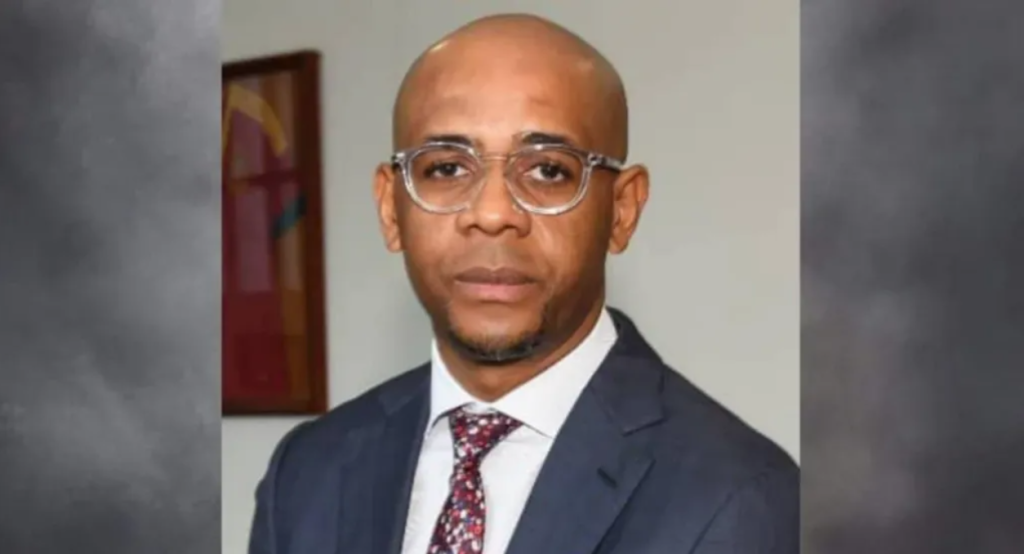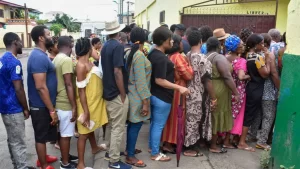Massive sex tape leak could be a ploy for power in Equatorial Guinea
4 min read
Baltasar Ebang Engonga

Baltasar Ebang Engonga
What might appear to be a simple sex tape scandal in Equatorial Guinea could actually be a calculated political maneuver in the ongoing power struggle within the country. Over the past two weeks, more than 400 explicit videos have surfaced on social media, showing senior civil servant Baltasar Ebang Engonga, also known as “Bello,” engaging in sexual acts with various women in his office and elsewhere. The leaked footage, which has sent shockwaves across the country and beyond, features some women who are reportedly wives or relatives of powerful figures within the government.
These videos have garnered intense attention both locally and internationally, but their timing and content raise suspicions. Some believe that the leaks are an attempt to discredit Engonga, a prominent figure and nephew of President Teodoro Obiang Nguema, who has ruled Equatorial Guinea since 1979. Engonga has long been seen as a potential successor to the aging president, making him a key figure in the nation’s political drama.
While the footage itself is disturbing, the broader context is crucial. Equatorial Guinea is one of the most politically repressive countries in the world, with no real opposition, limited press freedom, and a government that routinely cracks down on dissent. Despite regular elections, the Obiang family remains firmly in control, and the political landscape is defined by internal rivalries, where power struggles within the elite often determine who will ultimately lead the country.
Engonga’s rise to prominence seemed to position him as a potential heir to President Obiang. As head of the National Financial Investigation Agency, he was responsible for tackling crimes such as money laundering. However, his career came to a dramatic halt in late October, when he was arrested for allegedly embezzling significant sums from the state and funneling the money into secret accounts in the Cayman Islands. The arrest came shortly before the explicit videos of Engonga were leaked to the public. Engonga was taken to the notorious Black Beach prison in the capital, Malabo, where political opponents are known to face brutal treatment.
The first leaks appeared on Telegram before being widely shared on WhatsApp and other social media platforms. The scandal quickly gained traction, with the videos identified as depicting Engonga and various women, including some close to the country’s political elite. The government, facing a backlash, took action by giving telecom companies just 24 hours to come up with ways to stop the spread of the videos. Vice-President Teodoro Obiang Mangue, son of the president, condemned the scandal, calling it a “monumental crisis” that was damaging the country’s image.

The suspicion is that the leaks are part of a larger political strategy aimed at undermining Engonga’s reputation ahead of his trial. Many believe that the leak of these tapes could be part of a deliberate attempt by Vice-President Obiang Mangue, who has ambitions to succeed his father, to eliminate potential rivals. The vice-president has been consolidating power, sidelining other contenders like Gabriel Obiang Lima, another of President Obiang’s sons, who was oil minister for over a decade before being moved to a less influential position.
Activists like Nsang Christia Esimi Cruz, an Equatoguinean exile, argue that the scandal is a symptom of deeper issues within the regime. Cruz suggests that the leak could be an effort to tarnish Engonga’s name and remove him from the political scene before he poses a threat to the vice-president’s succession plans. Additionally, the scandal may serve as a pretext for the government to tighten control over social media, a key platform for disseminating information about the regime’s corruption and human rights abuses. In July, the government temporarily suspended internet access following protests in the island of Annobón.
For many Equatoguineans, the sex scandal is merely the latest chapter in a much longer story of corruption, power struggles, and human rights abuses. Despite the public outcry over the explicit content, Cruz and other activists point out that the underlying issue is not the scandal itself, but the deeply corrupt and dysfunctional system that allows such behavior to thrive unchecked.
In a bid to regain control of the narrative, Vice-President Obiang Mangue has called for CCTV cameras to be installed in government offices to prevent further incidents of misconduct. He also vowed to suspend any officials caught engaging in illicit activities at work, framing his actions as part of an effort to combat corruption. However, many view this as a move to save face, rather than a genuine attempt at reform.
While the scandal has generated significant international interest—especially in African countries like Kenya, Nigeria, and South Africa—activists argue that it distracts from more pressing issues in Equatorial Guinea. For them, the leak is not the illness but a symptom of a much larger problem: the corrupt, oppressive system that has held the country in a stranglehold for decades. “Equatorial Guinea has much bigger problems than this sex scandal,” Cruz said. “This is just a symptom of how corrupt the system is.”
Ultimately, the leak of the videos appears to be more than just a scandal; it is part of a larger political maneuvering as factions within the ruling elite fight for control over the country’s future.